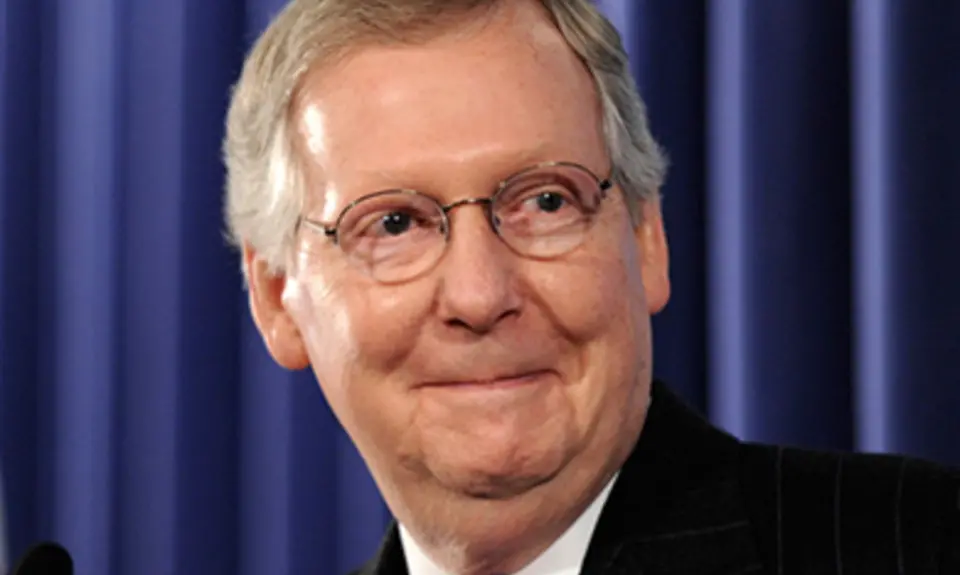This post was originally published at the Huffington Post.
Early this morning, The Nation published a leaked recording of Senate Minority Leader Mitch McConnell's remarks at a secret meeting of major conservative donors put together by the Koch brothers.
While the first reactions to the recording may highlight what this means for McConnell's Senate race against Alison Lundergan Grimes, the story carries deeper implications as well. At its core, this is a story about why we need to reform the way we finance elections.
In the audio recording, Sen. McConnell says everything that the Koch brothers want to hear. At the beginning of his remarks, he gushes to the brothers: "I don't know where we'd be without you." He rails against Senate votes on raising the minimum wage, extending unemployment benefits, and tackling student debt. It's no coincidence that he has received heaps of cash from wealthy special interests that oppose action on those issues. (Reporting today from The Huffington Post shows that at the same Koch retreat, Rep. Tom Cotton of Arkansas and state Sen. Joni Ernst of Iowa — both Republican nominees for U.S. Senate — "directly credited donors present…for propelling them forward.")
This is increasingly what our political system looks like. Those who can bankroll candidates can help set the political agenda — even if that agenda looks nothing like what the majority of Americans want it to look like. Research has shown that the wealthy have fundamentally different political priorities than those of everyday Americans, but when the preferences of ordinary Americans conflict with those of billionaire donors like the Koch brothers, it's the rich whose preferences carry the day.
And no one is a more vocal supporter of our broken campaign finance system than Mitch McConnell himself. In the secret tapes, Sen. McConnell says that the Citizens United decision (which paved the way for unlimited corporate political spending) simply "level[ed] the playing field for corporate speech," even calling the proposed constitutional amendment to overturn decisions like Citizens United "an act of true radicalism" from people who want to "use the power of the government to quiet the voices of their critics."
But Americans know that it's not billionaires or corporations who need the playing field to be leveled. Their priorities are coming through loud and clear in our democracy, thanks to politicians like Sen. McConnell who are fighting to ensure that those with the most to spend can continue to buy our elections. It's ordinary Americans, who increasingly cannot be heard over the roar of big money, whose voices need to be protected. And that "radical" push for a constitutional amendment, which will be voted on in the Senate on September 8, is actually supported by nearly three in four voters.
Maybe if Mitch McConnell weren't so busy pandering to billionaire donors, he'd be able to see the tremendous grassroots call to reform our money in politics system, with 16 states and more than 550 cities and towns already on record in support of an amendment. Then again, with true money in politics reform, maybe our senators wouldn't need to pander to billionaires at all.
